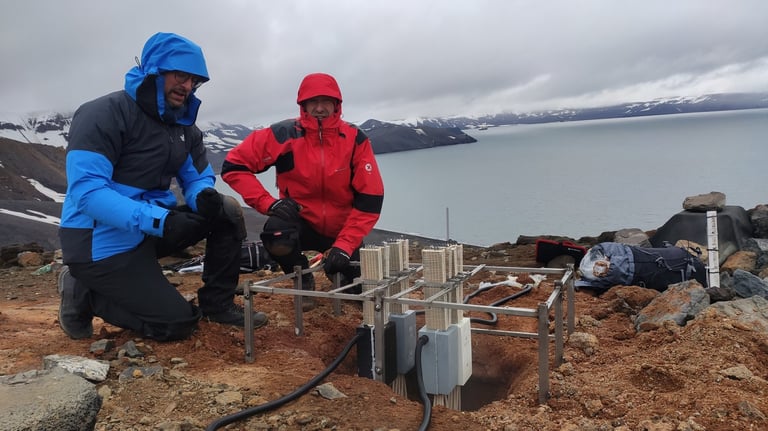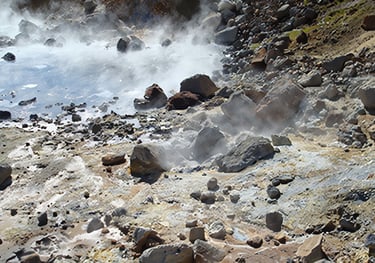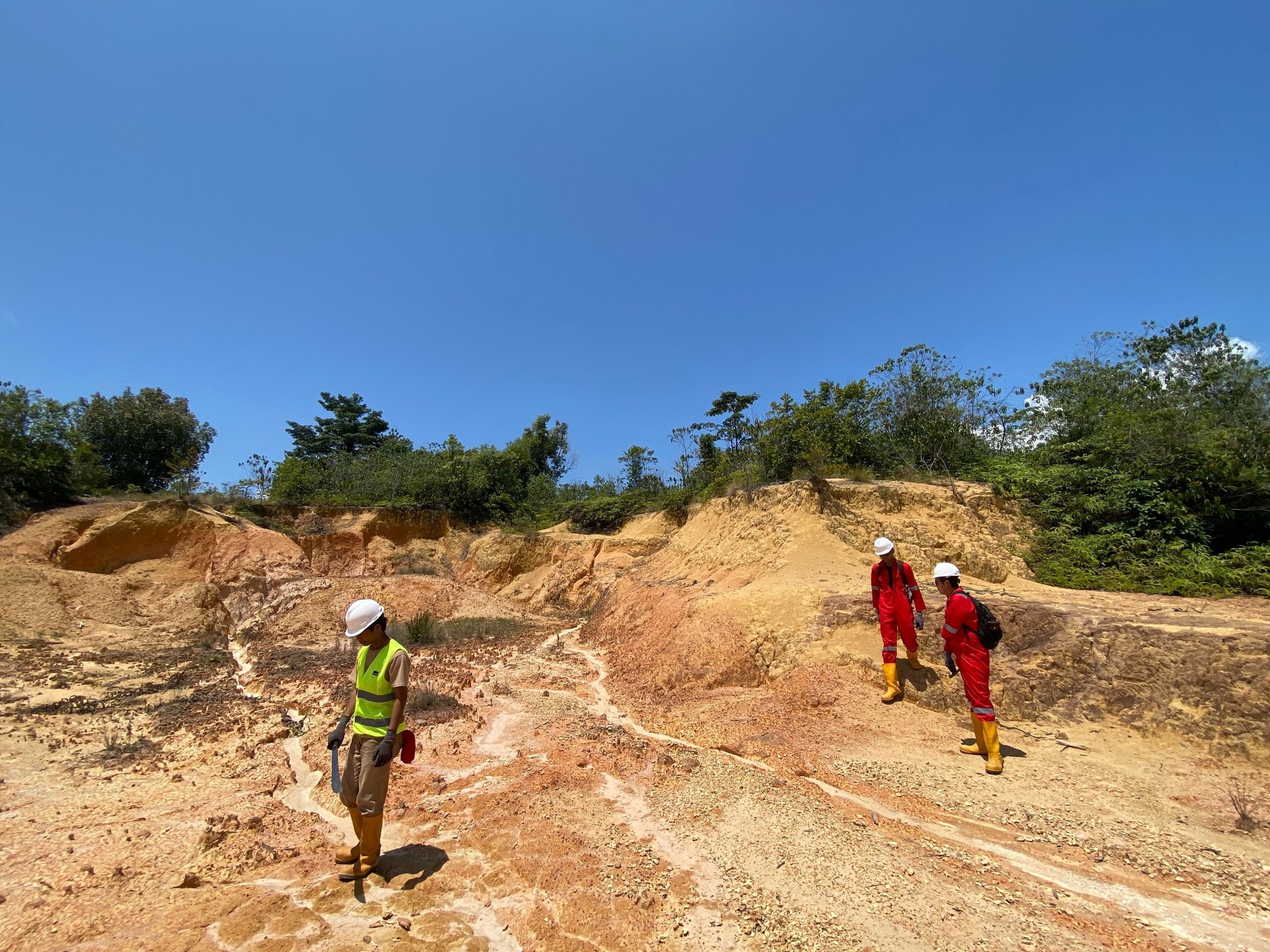Geothermal Services
Makranusa provides services in geothermal exploration, including mapping, drilling, acquisition, and analysis of 3G data (Geology, Geophysics, and Geochemistry), as well as environmental studies. We support the development of geothermal resources from the early exploration stage to field operations, ensuring accurate, sustainable, and client-specific solutions.
Geothermal Potential Investigation (Geology)
We provide geothermal investigation services to determine potential areas with comprehensive analysis based on various geological parameters. The methods we use include:
Remote Sensing Interpretation for early identification of regional geological characteristics.
Structure Interpretation to understand fault and fracture patterns that play a role in geothermal systems.
Regional Geology to assess the broad geological conditions that affect geothermal potential.
Hydrogeology (Hydrogeology Setting) to understand the groundwater system that plays a role in geothermal fluid circulation.
Geomorphology to analyze landforms related to geothermal activity.
Volcano-Tectonic Evolution to understand the history and dynamics of volcanic and tectonic activity in the prospect area.
Geological Mapping to detail the characteristics of rocks on the surface as an indicator of geothermal potential.
Dating of Rock to determine the age of rocks and geological history of the target area
Stratigraphy to analyze rock layers and their relationship with geothermal systems.
Geological Conceptual Model to develop a comprehensive picture of the geothermal system at the location under study.


Our Services
Geothermal Potential Investigation (Geochemistry)
We provide geochemical investigation services to analyze geothermal fluid characteristics to support further exploration. With the support of geological data, this method helps determine geothermal energy potential and recommends subsurface exploration. The methods we use include:
Sampling and Analysis of Water Geochemistry to understand the chemical composition of hot water and its interaction with rocks.
Sampling and Analysis of Gas Geochemistry to determine heat sources and gas characteristics in geothermal systems.
Sampling and Analysis of Isotope Geochemistry to trace fluid origin and geochemical processes.
Chemical Geothermometry in determining reservoir temperature based on fluid chemistry.
Chemical Hydrogeology to analyze hot water movement patterns and its interaction with subsurface rocks.
Tracer Test to understand geothermal fluid flow paths using chemical tracers.
Injection Strategy to determine the best method of injecting fluid back into the reservoir to maintain the balance of the geothermal system.
Geochemical Conceptual Model as a comprehensive representation of the geothermal system based on the geochemical data obtained.



Makranusa Geo
Copywrite © 2025. Makranusa Geo. All rights reserved.
geo.consulting@makranusa.io


Jl. Prof. Dr. Mahar Mardjono. Gedung A Lt. 3, FMIPA UI, Kampus UI Depok, Beji, 16424
+62 821-7302-2490
Follow Us on Social Media:



Working Hour
Mon
Tue
Wed
Thu
Fri
Sat
Sun
08.00 - 17.00
08.00 - 17.00
08.00 - 17.00
08.00 - 17.00
08.00 - 17.00
By appointment
By appointment
